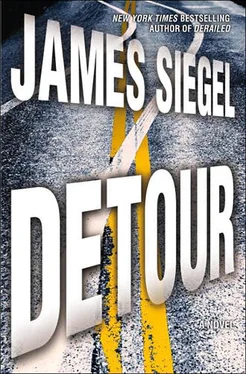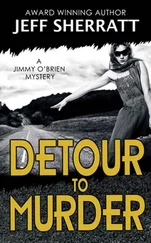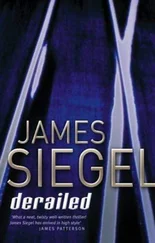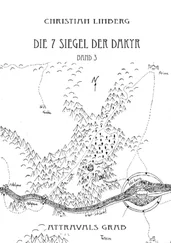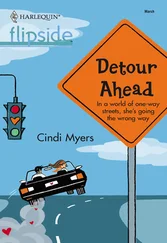He hung up and tried again.
Still no answer.
He felt feverish.
He walked back to 1346. He searched each passing face for signs of recognition, but they moved past like speeding drivers.
He planted himself in front of the burned-out house, where thin, needlelike cinders were still suspended in the thick, humid air.
They must’ve been expecting him, he thought. Someone would come back for the drugs.
He stood there for a kind of eternity. People walked back and forth, in front of him, behind him. No one stopped to speak with him. No one asked him what was in the overnight bag.
Then someone did come up to him.
A kid, even though he didn’t look much like a kid.
When he ambled across the street and sort of shuffled over to Paul, he thought that maybe this kid had been standing across the street for a long time. He looked familiar.
“Pssst,” the kid said.
“Yes?” Paul asked. He felt a first glimmer of hope.
“I know why you’re here, chief.” He looked to be the right nationality—Latino anyway.
“You do?”
“Sure, Holmes.” The kid looked left, looked right, then motioned to Paul to follow him. “Just waiting for the all-clear.”
“I saw the building had burned down. I didn’t know what to do,” Paul whispered, half a step behind him. The kid had turned the corner and was headed down a side street guarded by row houses all painted various uninspiring shades of brown.
“Uh-huh,” the kid said.
“I thought I’d wait till you found me.”
“Good thinking, chief.”
Halfway down the block, the kid turned toward an alley between two houses. They ended up in a backyard paved with cracked and spray-painted cement. Two empty windows with no shades stared at them from the back of the house.
“Let’s see what you got in the bag for me,” the kid said.
They’d found him. He was going to make it, after all.
It took just two seconds after Paul had opened the bag to realize he was dead wrong.
It was the kid’s expression. He’d looked in the bag and seemed, well . . . disappointed.
“What the fuck is this ?” he said.
“This is . . . ,” Paul started to explain, then stopped.
“ Money, Holmes,” the kid said. “You scorin’ or not?”
Not. It made perfect sense that the street where some Colombian drug dealers had been waiting for their cocaine might be a street where other drug dealers waited to sell it. He’d stumbled across one of them.
“No,” Paul said. He started to zip up his bag.
The zipper didn’t make it to the closed position; the kid grabbed his arm.
“Wait a minute, Holmes.”
It was like showing meat to a dog.
The kid had recovered from the disappointment. He was starting to realize what it was that he had seen.
“Where’s the fire?”
“I’ve got to go. I thought you were someone else, okay?”
“What’s wrong with me ?”
“Look, it’s not mine. I need to give this to someone.” Paul was tugging at the bag, but it wasn’t budging.
“ I’m someone, chief.”
“Look, this belongs to some dangerous people, understand? They’re going to be mad if they don’t get this.”
There was someone else who was dangerous here. The kid had lost the easy demeanor of a salesman. His eyes had gone stone-cold; he’d tightened his grip on the bag.
“Tell you what,” the kid said. “Let go.”
“No,” Paul said, surprising even himself. The old Paul would have spun the numbers, calculated the risks. He would’ve let go of the bag.
Not today.
If he lost the bag, it was over.
The kid reached into his pocket for something. Paul saw the dull gleam of metal.
“Look, boss, you want to let go of the bag, okay? You don’t want me to hurt you any, right?”
“I can’t let you have it,” Paul said.
“You ain’t letting me have it. I’m taking it from you.”
Paul didn’t let go.
He hardly saw the kid’s hand move. It didn’t seem possible a hand could launch itself into Paul’s left cheekbone and make it back to the side of his body all in the blink of a swollen eye. Paul felt as if he’d been hit by a high inside fastball—something that had happened twice in Little League, leaving a slight crack still detectable in X-rays of his orbital lobe.
Surprisingly, he didn’t go down. He tottered, teetered, wobbled. Then he did something even more surprising.
He swung back.
The kid had loosened his grip—maybe it was hard to wallop someone with one hand and hold something with the other. Paul wrenched the bag clear away from him, then swung it forward in the general direction of the kid’s head.
SMACK.
The kid went down. Hard. Hard enough to bang the side of his face on the cracked cement and look up at Paul with a hint of incredulity, if not outright fear.
Paul stared back.
Maybe it was Paul’s expression—he had his game face on. A face that said come on, just try it again. Just try. Or maybe, and more likely, it was the police cruiser that slowly drifted into view between the two houses.
Whatever it was, the kid got up and ran.
TWENTY-ONE
Miles answered on the third ring.
“Hello?”
“Miles?”
“Yes?”
“This is Paul. Paul Breidbart.”
Paul was back at the diner. He’d tried the number in Colombia again. Six times. No answer. He could think of just one other person to call.
“Paul?” It seemed to take his lawyer a long time to flip through the Rolodex in his mind and actually place him. “Well, how the hell are you? Are you and, uh . . . Joanna back?”
Paul wondered if he’d needed a real Rolodex to come up with his wife’s name. He guessed, probably.
“No. Yes. I am.”
“You are? She’s not ?”
“I’m in trouble, Miles.”
“What’s the problem? Everything okay with the baby?”
“Can I come see you?”
“Of course. Call the office tomorrow and make an appointment with—”
“I need to see you now,” Paul cut him off.
“ Now? I was just on my way home.”
“It’s an emergency.”
“This can’t wait till regular office hours?”
“No. It can’t wait for regular office hours.”
“Well . . . okay,” Miles said after a moment’s hesitation. “It is an emergency, right, Paul?”
“Yeah. It’s an emergency.”
“You’ll have to meet me at my house. You got a pen handy?”
“I’ll remember.”
He gave him a street address in Brooklyn.
PAUL USED A LOCAL CAR SERVICE WHOSE NUMBER WAS POSTED ON A crowded bulletin board in the diner’s stinking vestibule.
Jersey Joe’s Limos.
Stuck between Stanley Franks Psychotherapy and Wendy Whoppers Body Work—In Call and Out Call.
Paul could’ve used a session with both.
He needed a limo more.
Although Jersey Joe’s Limos apparently didn’t have limousines. Ten minutes after he’d called, a forest-green Sable pulled up to the diner and honked its horn twice.
The grossly overweight driver offered to put Paul’s bag in his trunk. Paul gripped the handle straps tighter and declined.
He wondered how much time he had. Had he been afforded an extension of sorts? When Arias called that house in Jersey City, no one would answer. There’d be no ring because there’d be no phone. Maybe they’d know something was wrong—they’d take that into consideration. They’d restrain themselves.
They were coming off the ramp of the Williamsburg Bridge, and some very strange-looking people were coming into view. At least strangely dressed. It was summer, but the men wore enormous fur hats and long black jackets. The women wore even more.
Читать дальше
